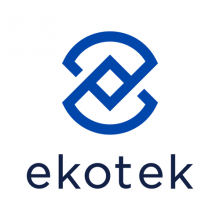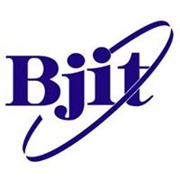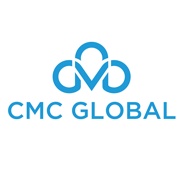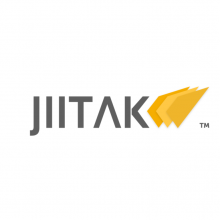
There are 21 Companies in Japan
that provide Angular Development Services!
The Information and Communications Technology (ICT) industry in Japan is touted to be the top industry in the country. In 2025, this sector is worth $467 billion. The Japanese government aims to take this number to 3.4 trillion by 2028.
Discover Top IT Companies in Japan specialized in Angular and other related services. Find the best IT service providers for your projects.
Angular (formerly AngularJS) is a popular open-source web application framework maintained by Google and a community of developers. It's used for building dynamic, single-page web applications (SPAs) and web-based applications in general. Angular provides a structured and organized way to create complex web applications by extending HTML with additional features and enabling the development of interactive, responsive, and maintainable front-end web interfaces.
Handpicked companies • No obligation to hire • 100% risk-free
Featured Companies in Japan
This month, the following Angular Development companies managed to provide an outstanding service and support. It's worth taking a look.
Japan IT, Software, translation and manpower support services with 25+ years of experience.
Innovature is a global software development company, with over two decades of experience delivering reliable and scalable software solutions.
Explore Top Angular Development Companies in Japan
Mobirevo is a Leading custom software development agency focused on web, mobile app development & saas application development.
ReadyToWork Inc. powers DX Promotion and Business Acceleration, delivering exceptional business solutions through Hybrid Agile Development Approach
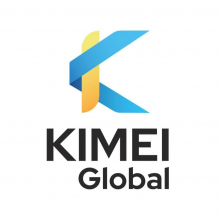
Kobe-shi, Hyogo, Japan Head office in: Vietnam
KIMEI Global | Innovative Software Development & ODC Solutions
With 24 years in Entertainment Tech, GIANTY excels in game development, art and anime production.
VietSoftware International (VSII) now has 150+ engineers and becomes one of the leading software outsourcing companies in Vietnam.
We are AHT Japan. We provide development and consulting services to expand your brand in this digital world.
Empowering society with groundbreaking, technology-driven innovations in sustainability.
Innovative Software Solutions for Every Business
Filter Angular Development Companies in Japan by Cities
Find the right tech company near you or from a specific city. Some of the best companies might be located in smaller cities.
Find more Angular Development companies around the world
TechBehemoths is the world's most advanced and user-friendly platform to match IT Companies with real clients without hustle.
ICT Industry in Japan: Country Profile and Insights
The Information and Communications Technology (ICT) industry in Japan is touted to be the top industry in the country. In 2025, this sector is worth $467 billion. The Japanese government aims to take this number to 3.4 trillion by 2028.
In fact, with the government steadily coming up with innovative ideas and efforts to significantly impact and contribute on a global scale, the industry is expected to boom exceptionally in the upcoming years. Both the public and the private sectors are aware of the importance of the latest, most innovative ICT solutions to advance the economy and are taking steps towards this. Hence, this sector holds immense business potential.
Why Work With Japanese IT Companies
Based on the country data of Japan, there are various opportunities in the ICT Sector. Firstly, the country ranks 3rd as the biggest market with average revenue per user in Asia. This means that local IT companies from Japan have adopted a mixed business model and adjusted it under both local and international IT market requirements. Shortly, Japanese IT companies approach international and local clients differently, keeping the longstanding business tradition but at the same time offering high-quality services and digital products to foreign markets under the rules of Western business style.
What to Be Aware of When Working With Japanese IT Companies
Since tech giants established business connections in Japan, local IT companies faced the need to change and adjust their approach to international requirements, ending the era of a “closed market”. This has brought both benefits and challenges for Japanese IT companies and web and software providers.
The biggest challenge remains the human resources for IT companies, since the legislation does not allow outsourcing professionals from other countries and relies only on native talent. Taking into consideration the demographics and the continuously ageing population, fewer young professionals are enrolled in the IT sector, which automatically means less flexibility and capacity to adopt new technologies and implement them into local digital business environments.
How Reliable Are Japanese IT Companies
Japan has built a reputation for its highly skilled professionals and trustworthy country, especially after WWII, when the US invested and developed under its umbrella the Japanese business environment. The Japanese IT companies, web and software agencies, take full advantage of this position by promoting their services and digital products on the international market.
How Does the Japanese IT Industry Relate to the Neighboring Countries
Japan has probably the most developed IT industry in the region and a proven high potential for providing the entire spectrum of ICT services at the highest quality. Nonetheless, South Korea and China are coming close to the 2nd and 3rd positions in terms of the IT industry and infrastructure development.
What is Angular and what are its benefits for your projects?
Angular (formerly AngularJS) is a popular open-source web application framework maintained by Google and a community of developers. It's used for building dynamic, single-page web applications (SPAs) and web-based applications in general. Angular provides a structured and organized way to create complex web applications by extending HTML with additional features and enabling the development of interactive, responsive, and maintainable front-end web interfaces. Here are some key aspects and concepts of Angular:
-
Component-Based Architecture
-
Templates
-
Directives
-
Dependency Injection
-
Services
-
Routing
-
Observable and RxJS
-
Modules
-
Testing
-
Cross-Platform
Angular's structured approach, strong tooling, and vibrant ecosystem of libraries and extensions make it a powerful framework for building modern web applications. It is particularly well-suited for large and complex projects where maintainability and scalability are crucial.
Companies may choose Angular over other front-end frameworks for their projects for a variety of reasons, depending on their specific needs and priorities.
-
Google Backing: Angular is developed and maintained by Google. This association often gives companies confidence in its long-term support, stability, and continuous improvement. Google's involvement is seen as a sign of reliability and commitment to the framework.
-
Mature and Established: Angular has been around for a while and has a strong track record of being used successfully in large-scale enterprise projects. It has a well-defined architecture and best practices, which can be beneficial for maintaining and scaling applications over time.
-
TypeScript Support: Angular is built with TypeScript, a statically-typed superset of JavaScript. TypeScript provides better tooling, code maintainability, and catches errors at compile time, which can reduce bugs and enhance code quality, making it attractive to companies that prioritize robust code.
-
Full-Featured Framework: Angular provides a comprehensive set of tools, libraries, and features out of the box, including routing, form handling, HTTP client, and more. This can save development time and effort compared to integrating multiple third-party libraries in other frameworks.
-
Two-Way Data Binding: Angular offers powerful two-way data binding, which allows for automatic synchronization between the data model and the view. This feature can make it easier to develop interactive and responsive user interfaces.
-
Large and Active Community: Angular has a large and active community of developers and a wealth of resources, including documentation, tutorials, and third-party libraries. This can be beneficial for finding solutions to common problems and getting support when needed.
-
Enterprise-Ready: Angular provides features like dependency injection, modularity through modules, and a strong emphasis on testability. These characteristics are well-suited for building robust and maintainable enterprise-level applications.
-
Strict Coding Standards: Angular enforces a set of coding standards and best practices, which can lead to more consistent and readable code. This can be important for companies with multiple developers working on the same codebase.
-
Cross-Platform Development: Angular can be used for building both web and mobile applications. Companies looking to develop applications for multiple platforms may choose Angular for its ability to share code between web and mobile apps using technologies like NativeScript or Ionic.
-
Integration with Backend Technologies: Angular can easily integrate with various backend technologies and APIs. This makes it suitable for projects where the front end needs to communicate with different types of server-side applications.
-
Security Features: Angular provides built-in security mechanisms to help prevent common web vulnerabilities like Cross-Site Scripting (XSS) and Cross-Site Request Forgery (CSRF). This can be crucial for projects with high security requirements.
-
Ecosystem and Tooling: Angular has a rich ecosystem of tools, extensions, and IDE support, including Angular CLI for project setup and management. This can streamline development workflows and improve productivity.
Ultimately, the choice of Angular or any other framework depends on the specific project requirements, the development team's expertise, and the company's long-term goals. Companies evaluate various factors to determine which framework aligns best with their needs, resources, and priorities.




